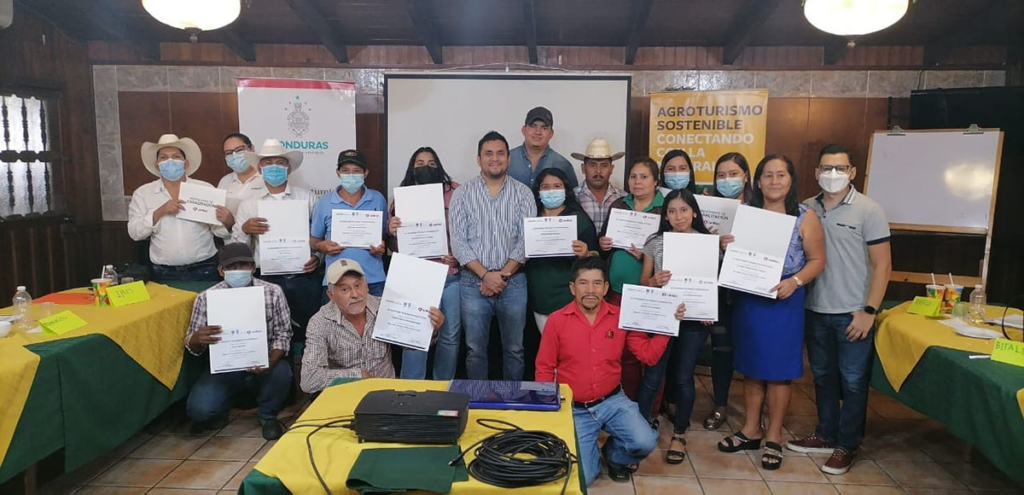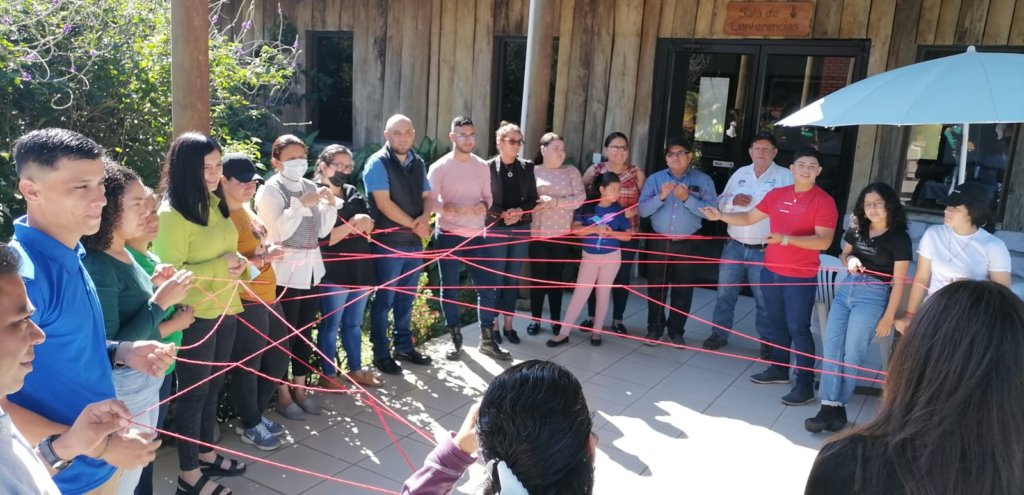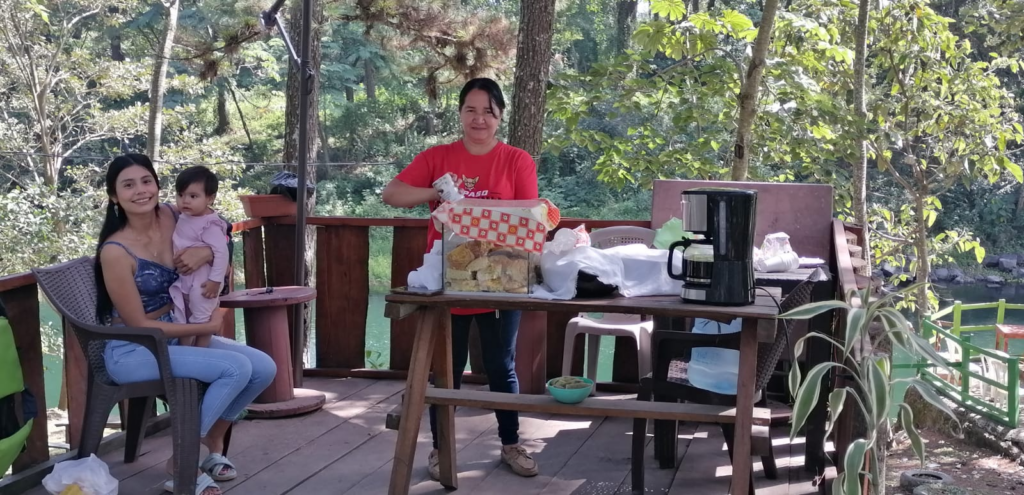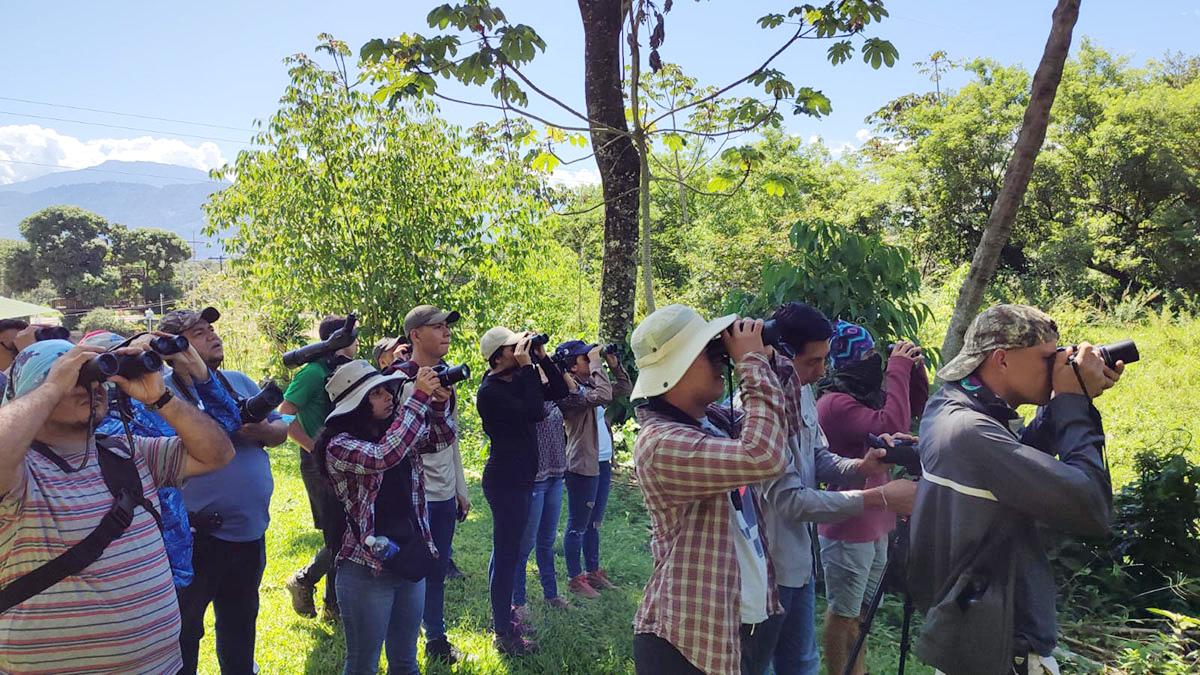Eco-agritourism: A strategy for achieving sustainability and supporting local communities
Eco-agritourism is a way to preserve the biodiversity of protected areas and generate sustainable opportunities for its inhabitants. Training equips communities with the knowledge and tools to safeguard their cultural and natural wealth while providing a source of income.
Solidaridad is the implementing partner on the Conecta+ project, which provides training on diverse topics, including eco-agritourism, avitourism, marketing of coffee and cocoa by-products, social inclusion, and gender equity. This two-year project is financed by the Global Environment Facility (GEF) and implemented by the Honduran Secretariat of Energy, Natural Resources, Environment and Mines along with Solidaridad.

The project comprises three protected areas:
- Cerro Azul Meambar National Park (PANACAM),
- Montaña de Celaque National Park (PNMC),
- Montecristo Trifinio National Park.
The work supports local actors engaged in coffee and cocoa production, beekeepers, entrepreneurs in rural tourism, local tourism businesses, indigenous peoples, producers, artisans, and the co-managers of the protected areas.
Indigenous Peoples: Critical advocates for sustainable development
Indigenous communities are a key audience for Conecta+. Eco-agritourism supports sustainable development in their communities and the reduction of inequalities through quality education, all part of the Sustainable Development Goals (SDG) of the United Nations (UN).
The training “Development and innovation of tourism products” was conducted in partnership with the Central American Technological University (UNITEC). The course provided participants with theoretical and practical knowledge for developing their products to be incorporated into eco-agritourism activities. These products and experiences could include coffee farms tours and tastings, bird watching or beekeeping tours.

“This type of project supports the development of our communities through new activities such as sustainable tourism, which is environmentally friendly.”
Domingo Pérez, leader of Indigenous Peoples
Parity and Gender Equality in Training
Gender equality is not only a fundamental human right but also one of the essential foundations for building a peaceful, prosperous, and sustainable world. That’s why Solidardidad includes gender equity and gender equality in all programmes to achieve more equal participation of men and women in all areas.

“Something essential for us in this project is social inclusion, such as the participation of youth and women, especially in rural areas. We are proud to share that for this project 63% of the participants were women” Gabriela Jeffs, Coordinator of the Conecta+ Project, Solidaridad
Parity in participation was achieved and surpassed in the second training on “Development and Innovation of Tourism Products”. Members of the Alliance of Women in Coffee (AMUCAFE) and the Capucas Coffee Cooperative Limited (COCAFCAL) participated in the training on “Gender Equity and Equality” that provided tools towards equity between men and women in Joya de Los Lagos biological corridor.
“It’s important for us women to participate in training courses that help us learn how we can contribute to the development of our communities and our families,” said Deysi Estevez of Capucas.

The transfer of knowledge helps women acquire new skills that enable them to succeed in their enterprises. Solidaridad recently facilitated an exchange of experiences where Honduran women in the coffee sector were able to learn and replicate knowledge from counterparts in Colombia. Another success story in Honduras is the approval and ratification of the Gender Policy in the Coffee Sub Sector at the 2022 Specialty Coffee Expo in Boston.
Avitourism: Training youth to become local guides in protected areas
Avitourism, or guided birdwatching, is another approach to preserving biodiversity in protected areas while providing an income source to young people.

The theoretical-practical training in bird watching with youth near protected areas provided valuable instruction to those who wished to become local guides and managers of the protected areas of Montaña de Celaque National Park and Cerro Azul Meambar National Park. Participants had the opportunity to learn about birds, their behavior, biology, reproduction, taxonomy, as well as how to look for birds and how to guide visitors.
“In Conecta+ we are looking to include young people to close the generational gap. We would like them to be able to replicate the knowledge in their communities, passing it from generation to generation.” Gabriela Jeffs, Conecta+ Project Coordinator, Solidaridad
Alliances that make sustainability possible in Honduras
Partnerships are a critical component of the Conecta+ project. Academic alliances have been formed with two major universities in Honduras: the National Autonomous University of Honduras (UNAH) and the Central American Technological University (UNITEC).
“The partnerships with the academy have given us excellent results. Key actors have been able to access high-quality training.”
Sofía Núñez, Country Manager, Solidaridad Honduras
The project is thriving thanks to the strategic alliances among international organizations interested in environmental issues, including the International Union for Conservation of Nature (IUCN), the Food and Agriculture Organization of the United Nations (FAO), the United Nations Development Program (UNDP), and Heifer International, also Honduran organizations such as the Foundation for Rural Business Development (FUNDER) and the Honduran Coffee Institute (IHCAFE), both committed to achieving sustainability in their country. The project is financed by the Global Environment Facility (GEF) and implemented by the Honduran government.
Eco-agritourism training has had a direct impact on women, youth, and indigenous peoples in protected areas in Honduras, providing ideas on how to generate income and protect biodiverse habitats. Solidaridad and its partners are beginning the second phase of the project to continue supporting sustainable development, gender equality, and the reduction of inequalities in Honduras.

